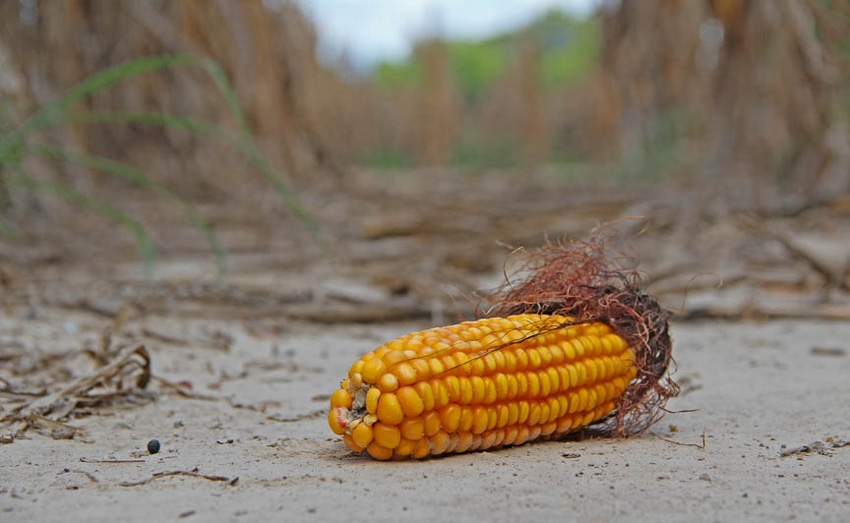September 9, 2013

Long overdue, a biotechnology website has been developed to enlighten the public concerning questions consumers might have about genetically modified organisms (GMOs) and their engineered incorporation into the world’s food supply.
Launched by the Biotechnology Industry Organization, a trade association that represents biotechnology providers, the site is called “GMO Answers” and seeks to dispel myths about so-called “Frankenfoods” while at the same time educating non-farm types about the many benefits of GMOs.
Interested readers can visit the new website at www.gmoanswers.com, which will provide answers on a wide range of questions regarding GMOs, including benefits, health and safety issues, regulatory requirements, international approval status, and many other worthwhile topics.
The past couple of years have been a challenge in terms of legislation, ballot initiatives and media articles aimed at agricultural biotechnology. The attack on GMOs has taken several forms in the western states – from proposed mandatory labeling requirements, to proposed bans on the planting of GMO crops, to proposed state and local permits and environmental impact statements for GMO seed production and crop research.
No better evidence exists of this latest assault on GMOs than that exemplified in Hawaii – in the form of Kauai County Bill 2491.
However, before launching into an explanation about how unnecessary this bill is to agriculture, I want to briefly qualify the safety and health facts that have gained GMOs ringing endorsements from the world’s top health and scientific communities.
GMOs have been approved as safe and beneficial by the World Health Organization, the American Association for the Advancement of Science, the British Royal Society, the American Medical Association, the U.S. National Academy of Sciences and every other respected organization that has examined the evidence has come to the same conclusion: consuming foods containing ingredients derived from GMO crops is no riskier than consuming the same foods containing ingredients from crop plants modified by conventional plant improvement.
Let it be noted that over 25 years of research has failed to find any harm from GMO technology. Furthermore, GMOs have been consumed commercially for almost two decades by millions of people worldwide in various food forms and there hasn’t been so much as a tummy- ache.
Now, circling back to the nonsensical oversight that Kauai leaders want to inflict on the manufacturers, farmers and residents on the island, the aforementioned Kauai County Bill 2491 would demand the local regulation of GMOs and pesticides even though these products are already heavily federally regulated by the USFDA, USEPA and the USDA.
A brief island history: For the average person, who probably thinks of Hawaii as a Garden Paradise, the fact is that Hawaii has a thriving Ag industry. With the development of modern biotechnology, companies began in the 1980s to purchase land and introduce GMO crops for research and ultimately commercial seed sale. Hawaii’s climate makes it ideal for biotech research and new varietal development because it allows biotech companies to get three or four planting seasons in every year.
GMO engineering savior
From humble beginnings, the seed industry, at more than $243 million annually, is the largest segment of Hawaii’s Ag sector. In 2010, the Ag companies exported more than 9.7 million pounds of seed, half of which was genetically modified. The seed industry alone employs roughly 1,400 people.
Now, here comes the kicker. In Hawaii, seed crops are not the only things that are being bioengineered. Along with corn (which is the largest crop), wheat, soybean, sorghum and canola are also benefiting from genetic modification. In addition, in the late 1980s, the University of Hawaii began developing a papaya strain resistant to the Papaya Ringspot Virus that was decimating papaya crops. Hawaiian farmers began commercially growing the first virus-resistant papayas in 1999. Bioengineered papayas now cover roughly 2,400 acres, three quarters of the total Hawaiian papaya crop. These papayas have been approved for consumption both in the U.S. and Canada, and several Asian countries are developing GMO papaya varieties resistant to their local virus strains.
So, in reality, GMO engineering has been a savior for Hawaii’s papaya industry. As for the public hearings on the bill, San Diego biologist Steve Savage who writes for the blogsite Applied Mythology and is not employed by any chemical company, just returned from Kauai after attending a council hearing on Bill 2491.
“The activist speakers made hyperbolic assertions about heartless corporations perfectly willing to sicken the entire population of the island and destroy the environment,” he writes on his blog. “Many non-agricultural residents expressed their palpable fear for the safety of their families. Some of the employees of the seed or coffee companies tried to explain to their fellow islanders that they and their families also live there, and so they would never want to put either their families or neighbors at risk. These people have good reason to worry about the future of their jobs.”
So there you have it – the same old scare tactics that environmentalists have used for years against the empirical scientific evidence proving otherwise. As of this writing, Bill 2491 has been deferred to September while opinions are sought from the area’s county council and state attorney general.
You can see now why a website was needed to dilute the fabrications and misinformation being spread by overzealous activists. It would help to spread the word about this new website and I’ll be keeping you updated about the developments in Hawaii. Let’s hope council members use common sense and logic to arrive at a sensible decision in the matter, instead of being swayed by emotional pleas that fly in the face of the evidence.
More from Western Farm Press
Wine grape strategies improve Bien Nacido Vineyards
You May Also Like




